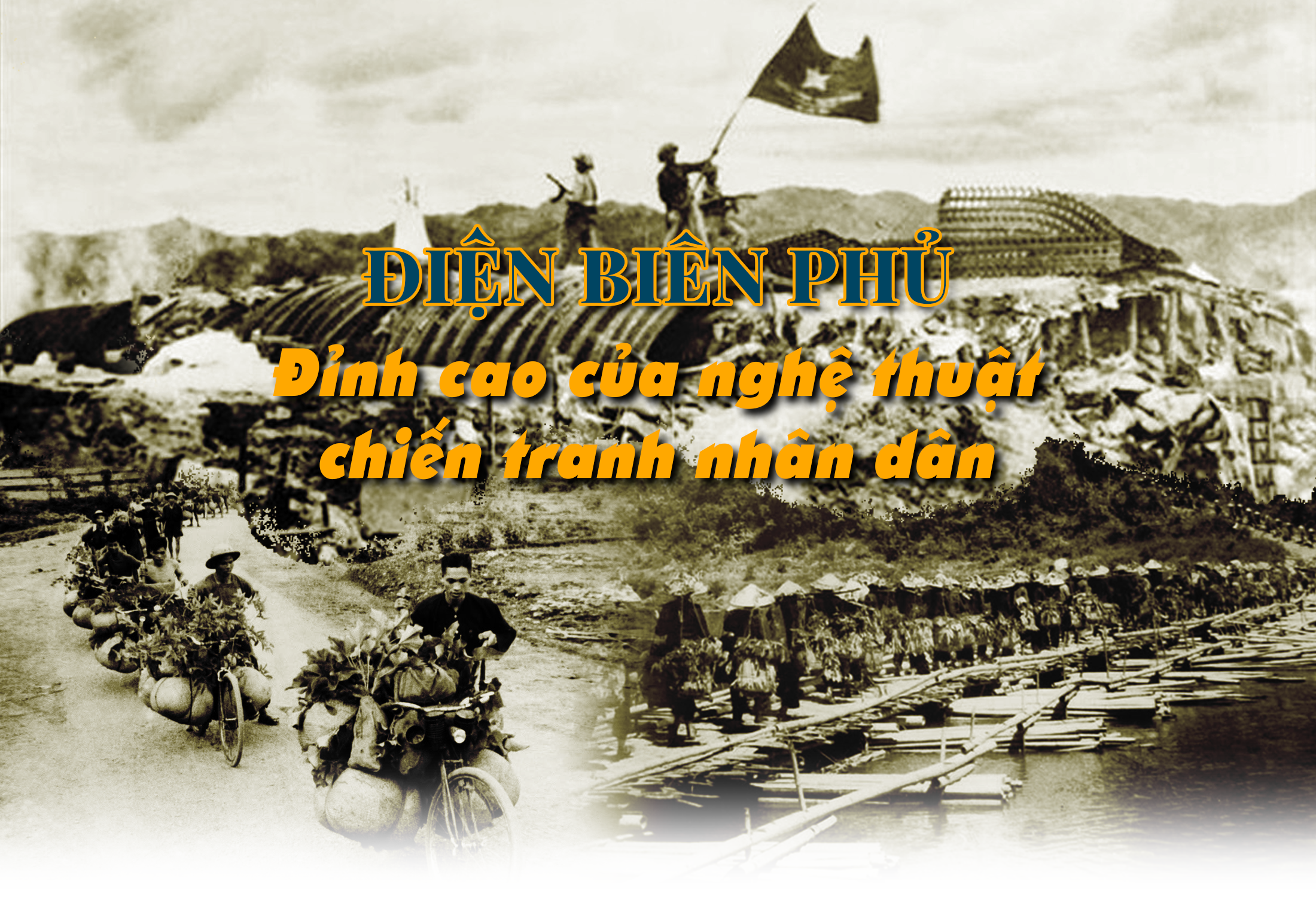

In the book “Under the glorious flag of the Party for independence, freedom, and socialism, moving forward to gain new victories”, General Secretary Le Duan affirmed: “The great Dien Bien Phu battle has been recorded in the history of the nation as a Bach Dang, a Chi Lang or a Dong Da in the 20th century”. Why?
The French colonialists fired the first shot to invade and rule our country in 1858. After nearly 100 years of oppression and domination by colonial imperialists, our people under the leadership of the Communist Party of Vietnam created the miracle of Dien Bien Phu in 1954 - a place considered by French General Henri Navarre as "a giant, indestructible fortress". The battle of Dien Bien Phu was not only a testament to the confrontation between justice and injustice, between the most powerful and modern military force in the world at that time of the French colonialists and the young Vietnamese Army, which had been born only 10 years earlier. This also created the significance and historical value of the "earth-shaking" victory.
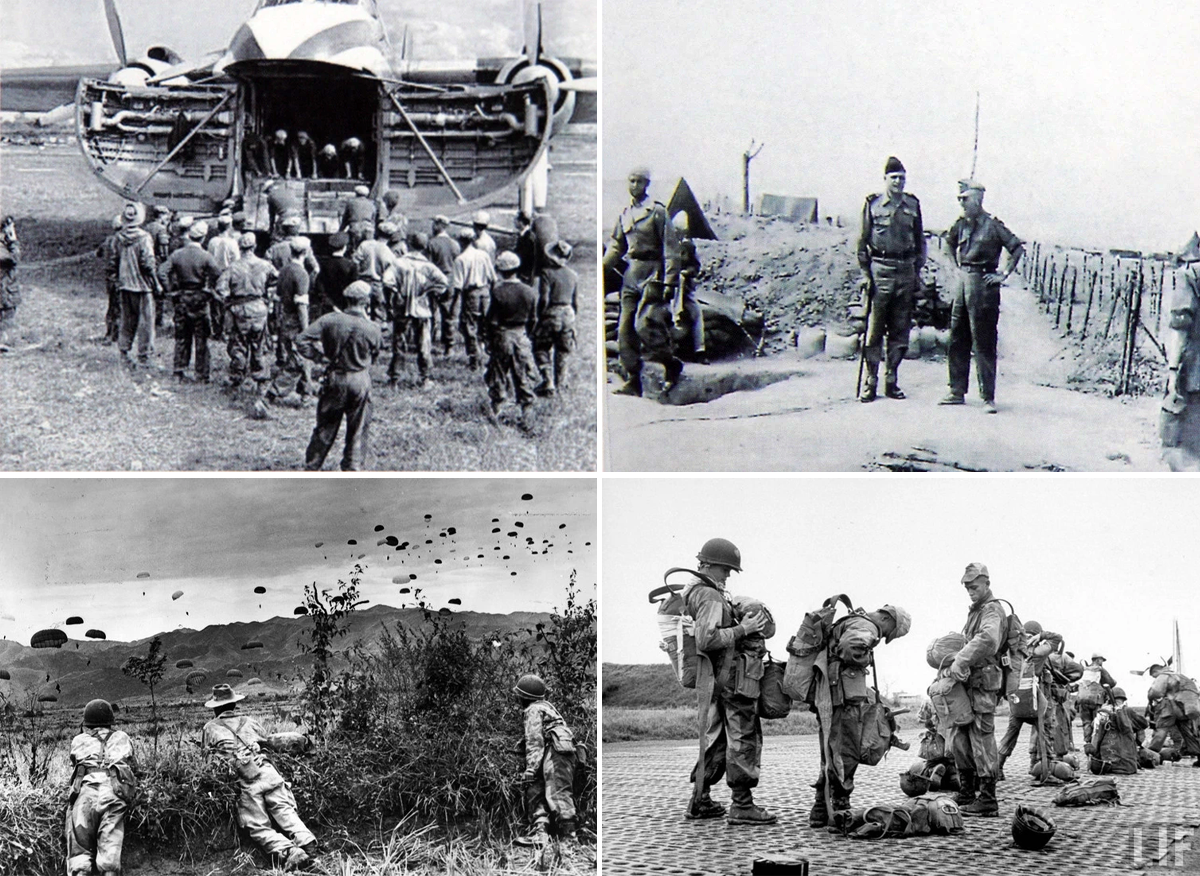
Looking back at the history of defending the country by generations of our ancestors shows that: The Bach Dang victory (1288) of the Tran Dynasty army and people ended victoriously the resistance war against the Yuan-Mongol army - the most powerful and brutal empire in the world at that time. The Tran Dynasty army and people, with one heart, protected the independence, territorial integrity and national sovereignty of Dai Viet.
The victory of Chi Lang - Xuong Giang (1427) by the Le Dynasty's army and people, equal to the powerful declaration of "Binh Ngo Dai Cao", completely defeated the invading Ming army, regaining independence and freedom for the nation.
The victory of Ngoc Hoi - Dong Da (1789) was the final announcement for the Qing invaders. Nguyen Hue's Tay Son army swept away the invaders from Dang Trong to Dang Ngoai, unifying the North and the South.
Each victory is a turning point in the history of the nation, completely defeating the invaders, opening a new era for the country. Therefore, the Dien Bien Phu Victory after 9 years of soldiers and civilians "digging mountains, sleeping in tunnels, eating rice balls in the rain, and mixing blood and mud" ended the domination of French colonialism that lasted from the 19th century to the mid-20th century and "went down in world history as a brilliant feat of breaking through the stronghold of the colonial slavery system of imperialism".
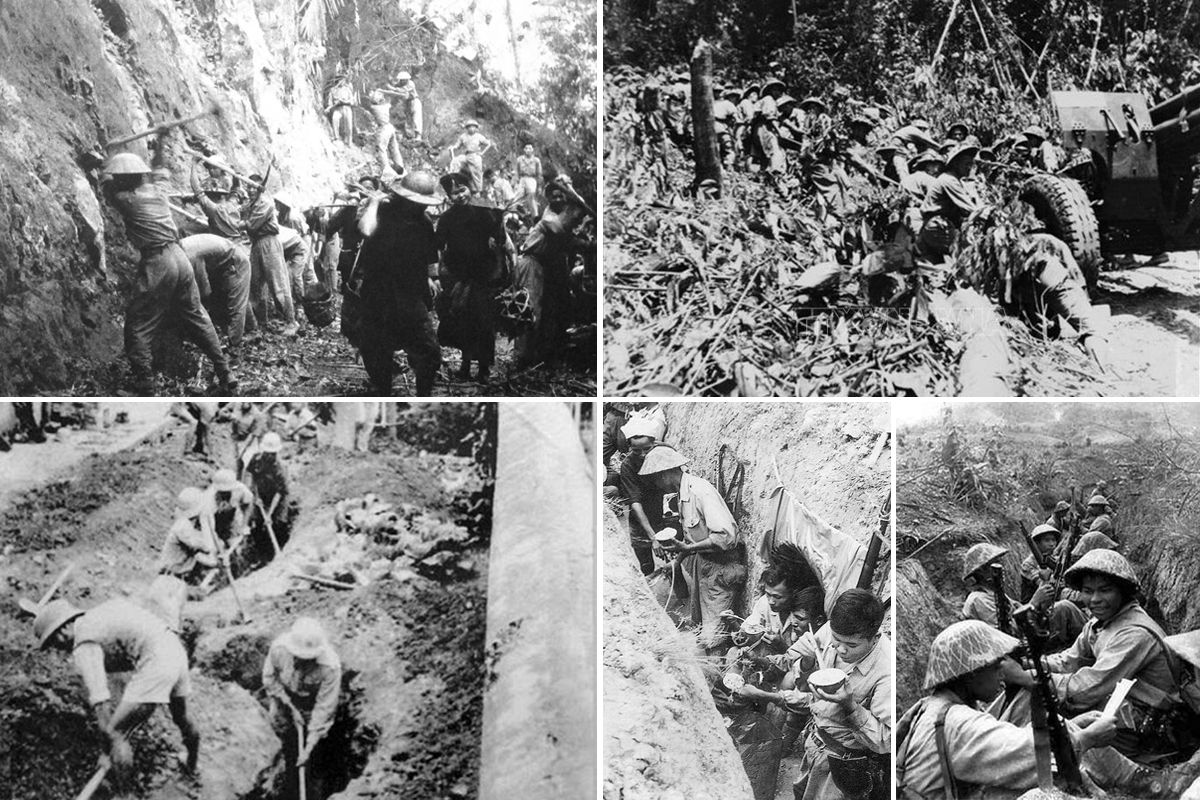
Comparing the Dien Bien Phu Victory with Bach Dang, Chi Lang, and Dong Da is not only about its historical significance and the value of independence and freedom it brought to the nation, but also about its scale, spirit, and the skillful application of military strategy based on the people, later called people's war. From the generals and soldiers of Hung Dao Dai Vuong Tran Quoc Tuan to the Lam Son Uprising Army of Le Loi; from the Tay Son Uprising Army of Quang Trung to Uncle Ho's soldiers, the youth volunteers, and the frontline laborers later on... all came from the people, fought for the people, and sacrificed for the people.
The resistance war against French colonialism that ended with the historic victory of Dien Bien Phu was a resistance war carried out right after the country had just gained independence, the political position was not yet stable, the treasury was exhausted, the people were hungry, the armed forces were small and weak, and hunger and illiteracy were all around. Therefore, our Party, our army and people under the leadership of President Ho Chi Minh and the commander-in-chief of General Vo Nguyen Giap creatively and flexibly applied the policy of all-people, comprehensive, long-term war, relying mainly on our own strength, combining the powerful political force of the revolutionary masses with the armed forces, creating a "red wreath, golden history" for Vietnam in the 20th century.
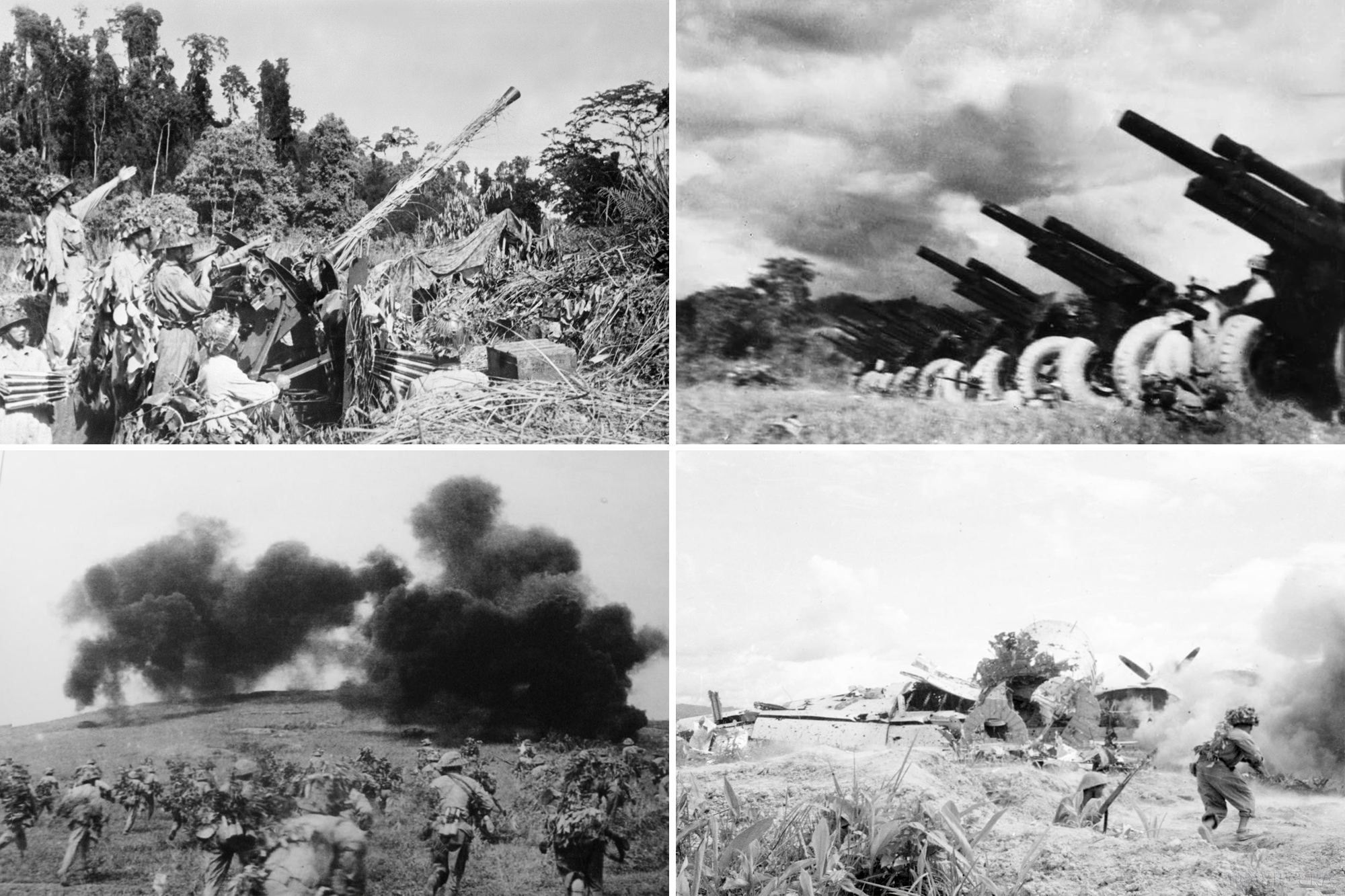

In both resistance wars against the French colonialists and the American imperialists, our Party advocated the implementation of the people's war policy, with the motto of all people, comprehensive, long-term and self-reliance. Therefore, although the focus of the war and the fierce battlefield were in the Northwest and the South, the provinces and cities in the rear also played a particularly important role. If the front line wanted to be strong and defeat the enemy, the rear line had to be solid and loyal.
Nghe An, a land with a revolutionary tradition, always taking the lead, being the "hot copper citadel" of the whole country, in each historical period, not only was it ready to fight to protect the peace of the country, providing and supplementing military forces, especially talented heroes, outstanding generals for the fronts, but it also excellently fulfilled its noble mission: a great rear base providing human and material support to the battlefields.
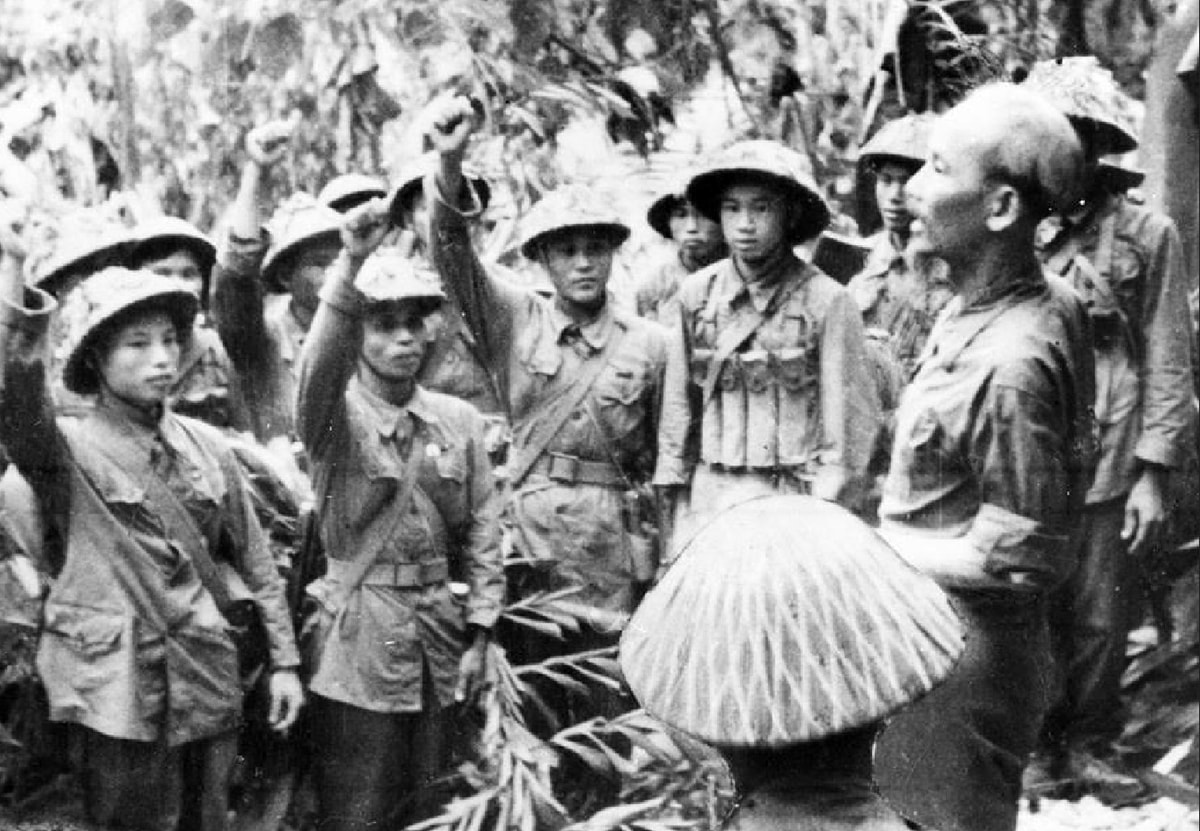
Recalling the history of the struggle of the army and people during the Tran Dynasty. In the year of Nham Ngo (1282), the Yuan-Mongol invaders were actively preparing 500,000 troops, using the excuse of borrowing the road to attack Champa in order to invade our country. Faced with that danger, the Tran Dynasty court convened the Binh Than conference to discuss the resistance plan. King Tran Nhan Tong tapped his sword on the side of the boat and declared: "Coi Ke cuu su quan tu ky/ Hoan Dien do ton thap van binh". Meaning: "You need to remember the old story of Coi Ke/ Hoan Dien still has 100,000 soldiers". This shows that hundreds of years ago, the feudal dynasties of our country recognized the land of Chau Hoan - Chau Dien (Nghe An today) as the country's border area.
Also in the land that is likened to the Coi Ke region (Zhejiang - China) in the years after the August Revolution of 1945, the people of the whole country were hungry and deprived, the young government, independence had not been long, the whole country had to enter a long and arduous resistance war. But with the motto "using our strength to liberate ourselves", President Ho Chi Minh and Commander-in-Chief of the Dien Bien Phu Campaign - General Vo Nguyen Giap with their versatile military strategy, along with the art of people's war mobilized the material and spiritual strength of the people to defeat the invading French. When the army was thin, young volunteers joined the army and increased training; when food was scarce, people were mobilized to increase production, store and contribute; when means of transportation and communication were difficult, the solution of carrying and carrying was proposed; If the service force is weak, then call on youth volunteers, frontline laborers... True to the spirit of President Ho Chi Minh's call for national resistance (December 19, 1946): "Any man, any woman, any old person, any young person, regardless of religion, party, ethnicity, as long as they are Vietnamese, they must stand up to fight against French colonialism. Whoever has a gun will hold a gun, whoever has a sword will hold a sword, whoever has no sword will use a hoe, a shovel, a stick"... National strength is the weapon, the bond that connects the entire nation, the people will join forces, unite in the face of the nation's destiny. And food and necessities for the resistance from there "became a high mountain" to march all the way to the Northwest to supply, all for the front line.
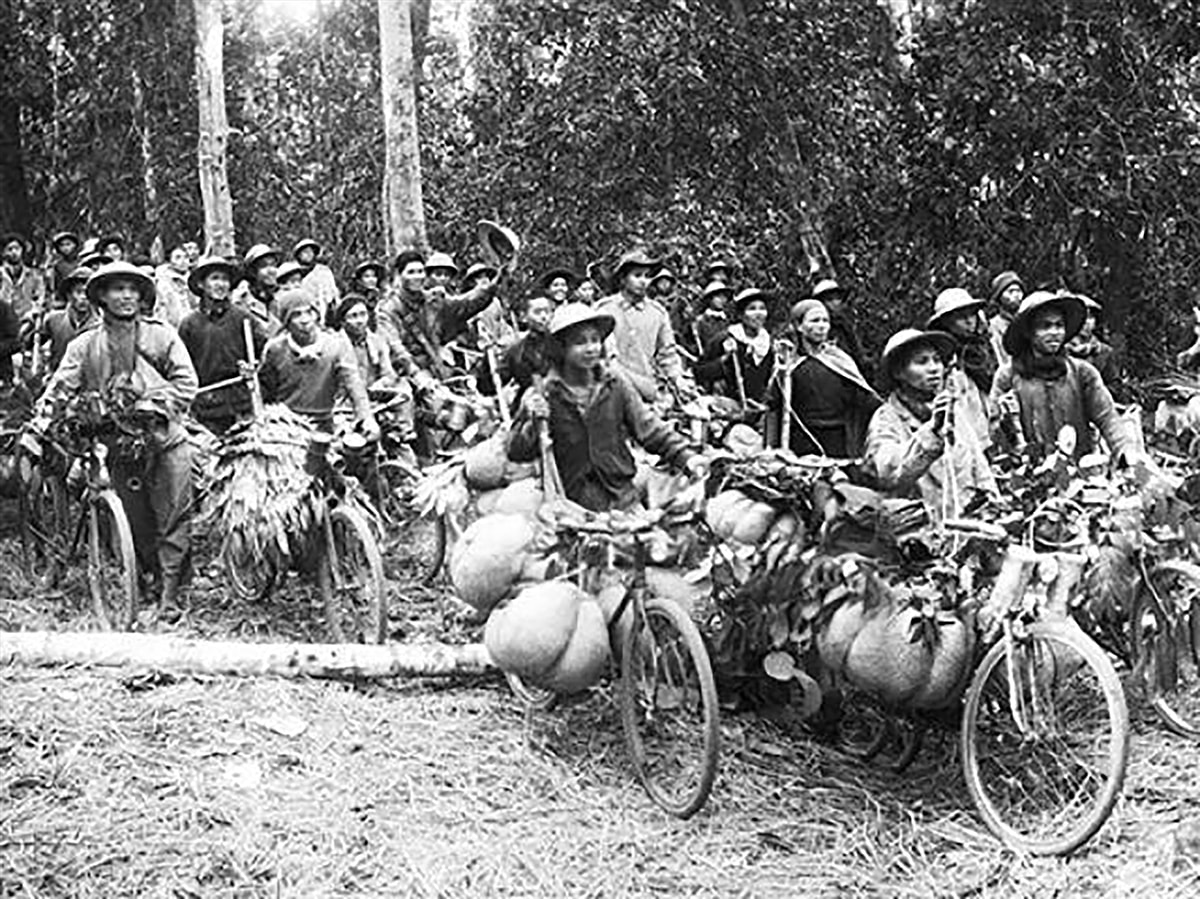
Until today, after 70 years of Dien Bien Phu Victory, the world and generations of Vietnamese people still continuously analyze and explain: Why was a small country able to defeat a powerful and aggressive invader of the world at that time? Why were barefoot, plain-clothed boys and girls victorious against an elite army equipped with modern weapons and equipment? Why did bicycles defeat trucks and airplanes? Why were artillery pieces pulled up high mountains and deep ravines by human power defeated armored tanks? And why were there suicide soldiers who dared to use their bodies to fill loopholes and make gun mounts? Many questions: why? Those were not just heroic actions created by ordinary farmers. That was not just the indomitable, heroic spirit of generations of Vietnamese people. That was also not the common instinct of resistance when being trampled. It is truly the aspiration of an entire nation for peace, independence, freedom and self-determination. It is love for the country, pride for the people, self-respect for human dignity and awakening of human conscience.
The miracle of Dien Bien Phu was woven from individual heroic miracles. They were ordinary, small people among the people. They were “comrades who held backs to save artillery, their bodies broken when they closed their eyes, still holding on”, they were “hands that split mountains and rolled bombs, determined to clear the way for our vehicles to go to the battlefield to provide reinforcements”… And they were not only the main force troops, the soldiers trained to fight, but also the youth volunteers, the frontline laborers “some carrying on their shoulders, some carrying… some singing, some singing”, they were teenagers and children who participated in defending the village, defending the hamlet and the heroic blood always flowing in their veins… That was also the miracle, the pinnacle of the people’s war.
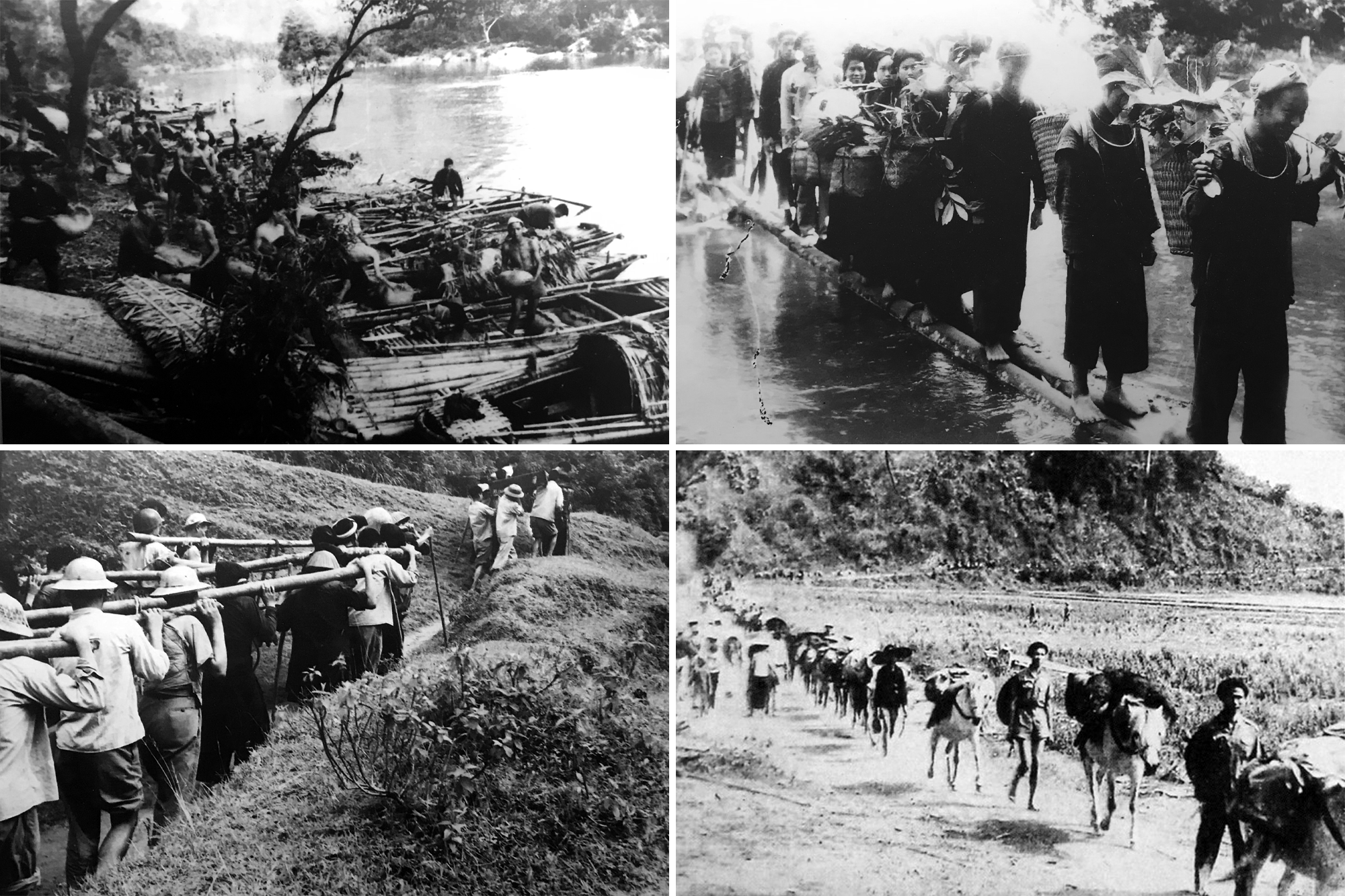
In the historic Dien Bien Phu Campaign, Vietnam mobilized more than 35,000 transporters and over 20,000 bicycles to bring more than 14,000 tons of weapons, food, and equipment to Dien Bien. And Thanh - Nghe - Tinh were the three localities that provided the largest number of people, food, and military supplies for the campaign in the country. There are no exact figures for each stage or each battle, because the process of supplementing human resources and supplying goods was continuous and prolonged. The front line needed a ready rear. But in the 9 years of resistance against French colonialism, Nghe - Tinh added nearly 106,000 troops to the front lines, mobilized more than 1 million laborers, and contributed 31 million working days. At the peak of the first day of the Lunar New Year in 1954 and the general mobilization for the campaign, Nghe - Tinh mobilized 32,000 laborers, thousands of new soldiers, and nearly 6,000 young men to join the army.
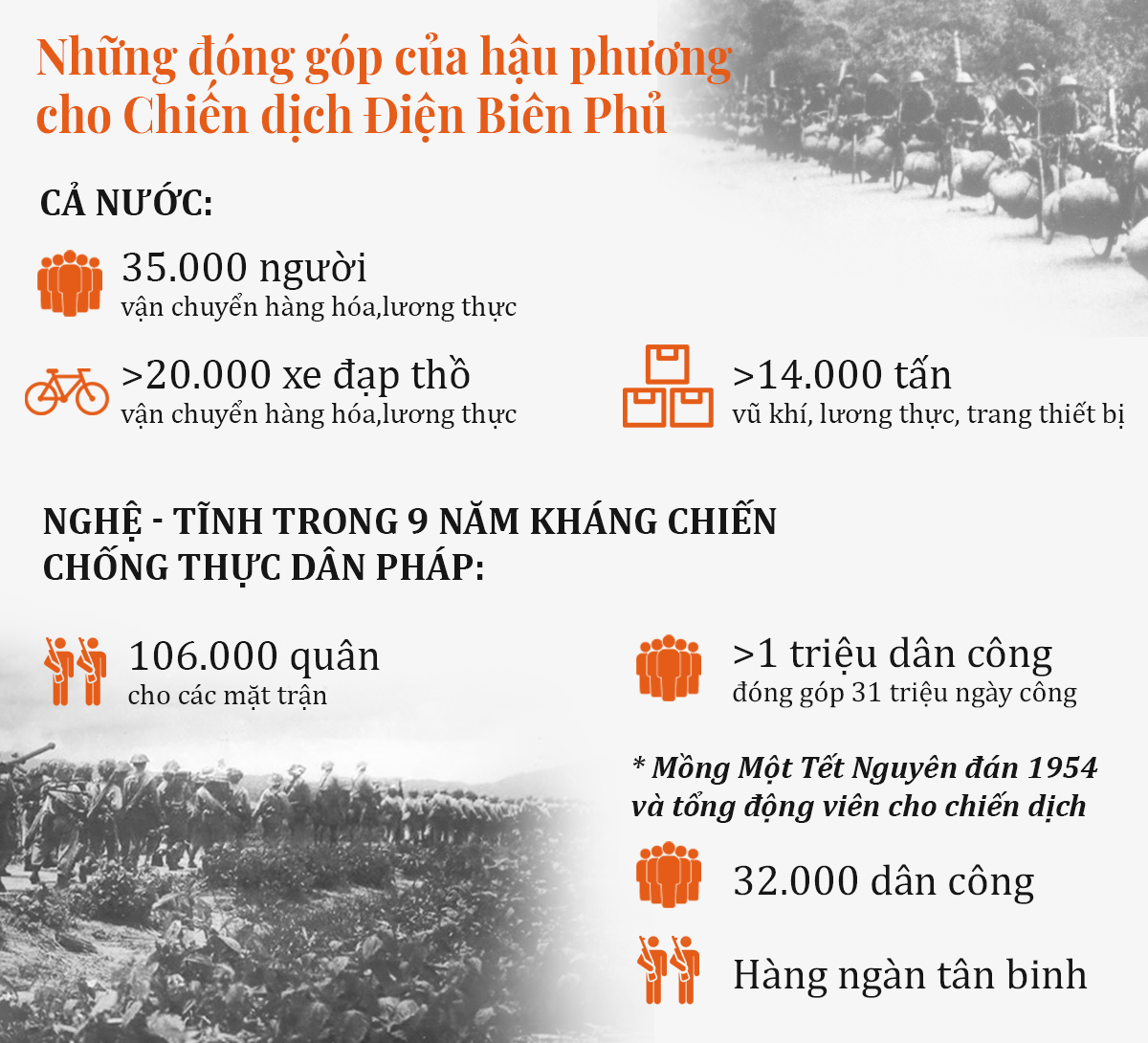
When talking about the contributions of the rear to the Dien Bien Phu Campaign, General Secretary Le Duan once again emphasized: "Without Thanh - Nghe - Tinh, there would be no Dien Bien Phu Campaign, no victory in the resistance war against the French."
The victory of Dien Bien Phu, the pinnacle of the people's war, "resounded throughout the five continents" not only because of the resounding victory on the battlefield, of the seemingly unequal confrontations between a powerful imperialist with modern weapons and the military and civilian forces of a small, weak country; and not only because of the "earth-shaking" military, political, and diplomatic victory that ended the French colonial rule in Vietnam and the signing of the Geneva Agreement. But more importantly, it was also because of the miracles created by ordinary people with courageous and steadfast actions. They were heroes born from the people.
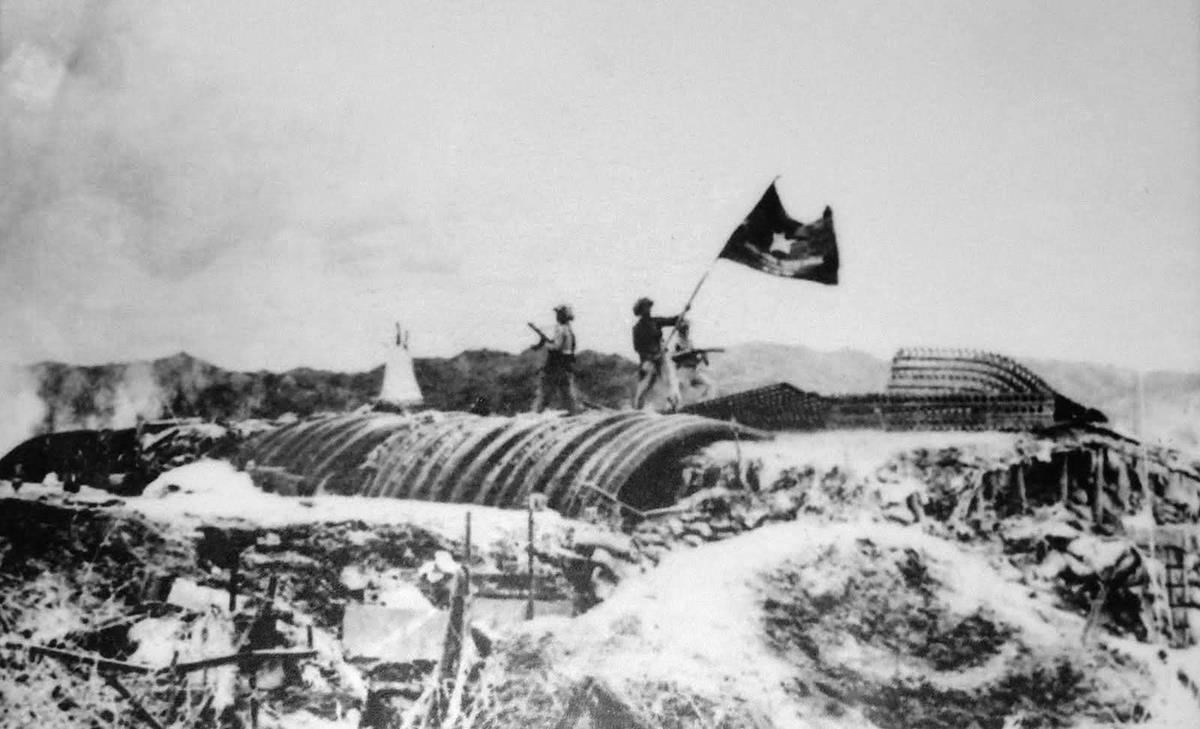
There is no fortress that cannot be destroyed, only the people's hearts and national spirit are inviolable. As President Ho Chi Minh once said: "Our people have a passionate love for the country. That is a precious tradition of ours. From ancient times until now, every time the Fatherland is invaded, that spirit boils up, it forms an extremely strong and huge wave, it overcomes all dangers and difficulties, it submerges all traitors and invaders."
